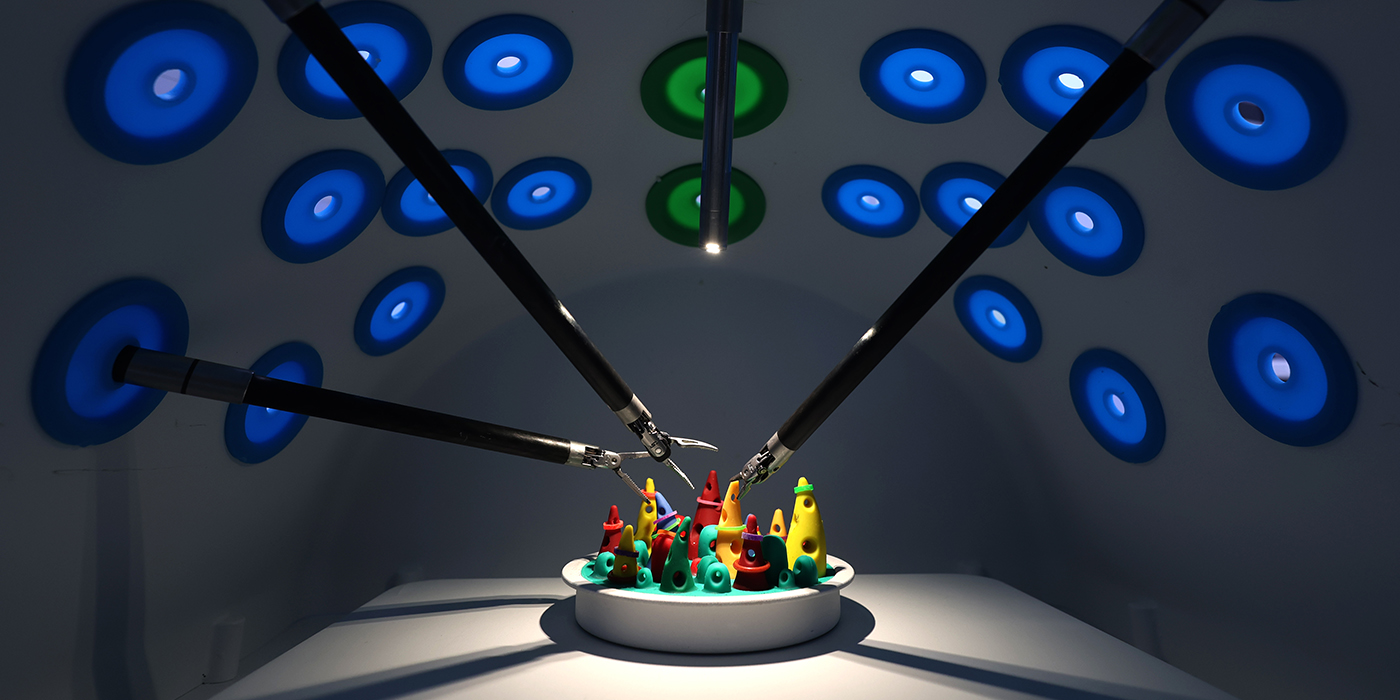Long COVID is a nightmare for patients and is present in 3 out of 4 patients who have recovered from the acute infection. Persistent symptoms such as fatigue, difficulty in sleeping, memory loss or hair loss can affect their daily life. The Microbiota I-Centre (MagIC) of The Chinese University of Hong Kong (CUHK) has identified distinct gut microbiome profiles that characterise “long COVID”. These distinct gut microbial signatures can be used to predict the risk of developing long COVID in patients with acute infection and to diagnose long COVID in recovered patients with persistent unexplained symptoms. This is the world’s first study to demonstrate gut microbiota as a key determinant of long COVID. The results have been published in a leading international journal, Gut.
In a pilot study of recovered COVID-19 patients who received a novel gut microbiome immunity formula (SIM01) developed by CUHK, 90% of them did not develop long COVID when followed-up to 6 months. A large-scale randomised trial is underway to confirm the efficacy of this formula as a treatment, so offering hope for the prevention and alleviation of long COVID via microbiota modulation.

What is “long COVID”?
Long COVID is defined as the presence of persistent symptoms, such as fatigue, poor memory, difficulty in sleeping or breathing and hair loss, for four weeks or more after clearance of the SARS-CoV-2 virus. According to a study by CU Medicine, about 80% of patients had long COVID six months after recovering from COVID-19.
Patients with long COVID have distinct gut microbiome composition
Diagnosis of long COVID is often delayed because symptoms are non-specific and there is no specific test to explain long COVID symptoms. The development of non-invasive, microbiome-based profiling will be a useful tool for timely detection of long COVID.
Based on metagenomics analysis of serial stool samples of over 100 patients, the team identified distinct gut microbiome profile for long COVID. It was found that different subtypes of long COVID had specific patterns of gut microbiome profile. For example, a lack of the “friendly” immunity-boosting bacteria is strongly associated with persistent respiratory symptoms such as cough or shortness of breath, whereas an abundance of certain pathogens is linked to fatigue and neuropsychiatric symptoms including difficulty in sleeping, poor memory and loss of taste. By using a machine-learning model with over 1,200 clinical samples, the team can accurately predict and detect long COVID-associated microbiome with over 90% sensitivity and specificity.
Detecting distinct gut microbiome profile associated with long COVID has three major clinical applications, namely, a prediction tool for long COVID with 90% of accuracy; as a diagnostic tool for suspected long COVID with both sensitivity and specificity about 90%; and as a treatment guide for long COVID.
The gut microbiome test for long COVID is an innovative technology of the Microbiota I-Center (MagIC) funded by InnoHK, an initiative of the HKSAR Government’s Innovation and Technology Commission. CUHK Medical Centre will be the first in Hong Kong to provide this innovative test.
Over 90% of patients who received SIM01 did not develop long COVID
Treating long COVID is challenging given that, until recently, there has been no definitive clinical test for diagnosis, and there is no standard treatment yet. A recent pilot study conducted by the research team showed that in patients who received CUHK’s microbiome immunity formula SIM01 for four weeks, over 90% of them did not develop long COVID up to a year of follow-up.
Professor Francis KL CHAN, Dean of Medicine and Director of the Centre for Gut Microbiota Research at CU Medicine, remarked, “Since the outbreak of COVID-19 in 2020, more than 500 million people worldwide have been infected. Our results showed that almost 80% of our local patients suffer from long COVID. Our discovery not only offers a scientific explanation for long COVID for the first time, but also provides an effective tool for prediction, diagnosis and treatment of this global health problem.”
Professor Siew Chien NG, Associate Director of the Centre for Gut Microbiota Research at CU Medicine, added, “Our study showed that microbiome-based profiling is potentially useful for risk assessment, timely diagnosis and targeted treatment of long COVID. These new findings also indicate that in addition to hastening recovery from acute COVID-19 infection, a microbiome immunity formula (SIM01) is potentially effective in preventing long COVID.”
CU Medicine conducts a large-scale study to evaluate the effectiveness of SIM01 for long COVID
CU Medicine has started a large-scale randomised clinical trial to study the efficacy of SIM01 in preventing and treating long COVID. Professor Martin Chi Sang WONG, Professor from The Jockey Club School of Public Health and Primary Care at CU Medicine, said, “We are currently recruiting recovered COVID-19 patients who have persistent symptoms into a clinical trial that aims to reduce long COVID by modulating their gut microbiota.” This study is supported by the Food and Health Bureau’s Health and Medical Research Fund.










